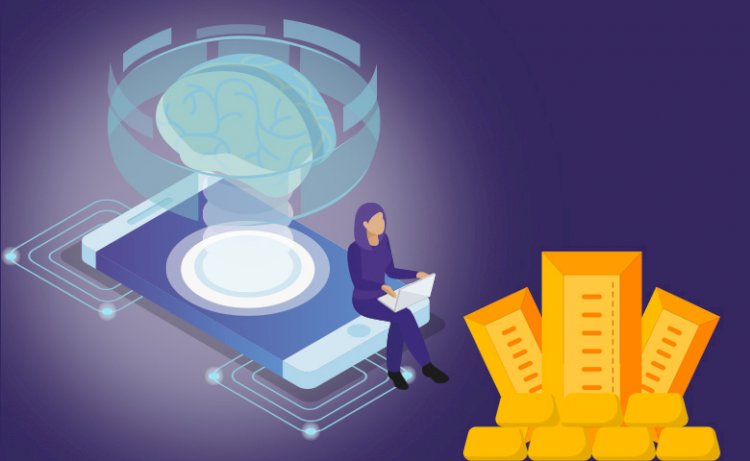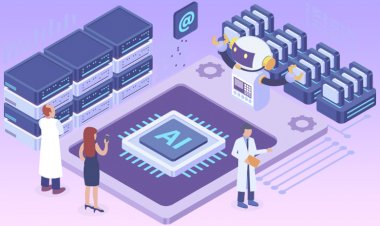The Application of Artificial Intelligence in the Gold Industry

The gold industry has long been recognized for its inventiveness and openness to new technologies. The industry is poised to advance significantly further as a result of the development of artificial intelligence (AI). AI is expanding business opportunities, boosting productivity, and lessening its negative effects on the environment. To guarantee the industry's continued success, there are, however, obstacles that must be overcome.
The ability of AI to find new reserves is one of the most important advantages it has for the gold industry. AI can analyze geological data and find anomalies that point to the presence of gold deposits through complex algorithms and machine learning. This makes it possible for mining companies to explore new areas more effectively and precisely, ultimately leading to the discovery of previously undiscovered reserves.
AI is also helping mining companies increase the productivity and security of their operations. AI-powered sensors can be used to monitor mining equipment in real-time and identify any potential faults or malfunctions before they result in significant damage or downtime. This proactive strategy guarantees efficient operations, maximizing output and minimizing the need for pricey repairs or replacements.
For the gold industry, AI is developing new business models and value-added services in addition to enhancing operations. Mining companies can tailor their services to meet particular needs by analyzing consumer behavior and preferences, setting themselves apart from the competition by offering individualized services. This strategy can assist mining companies in generating new revenue streams and promoting the long-term success of the sector.
Despite these advantages, there are still issues that need to be resolved. Making sure AI is used ethically and responsibly presents one of the biggest challenges. There is a chance that AI will be used to automate jobs that will cause social and economic disruption. The industry must develop moral and responsible AI strategies in collaboration with regulators, policymakers, and other stakeholders in order to meet this challenge.
The potential effects of AI on the environment present another difficulty. While AI has the potential to lessen negative environmental effects by, for example, maximizing energy efficiency or reducing waste, there is also a chance that AI will be used to extract resources at an unsustainable rate. It is crucial that mining companies adopt sustainable mining practices and work to reduce their environmental impact in order to address this problem.
In conclusion, AI is opening up a wide range of possibilities for the gold industry, from locating new reserves to enhancing productivity and developing fresh business strategies. To ensure that AI is used ethically and sustainably, there are, however, obstacles that must be overcome. The sector can prosper going forward and help drive global economic growth and development by cooperating and acting responsibly.
Author: Pooyan Ghamari, Economist Visionary and Specialist in Gold and Banking

 content-team
content-team 


















